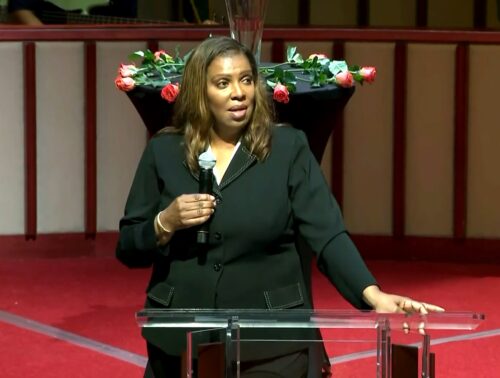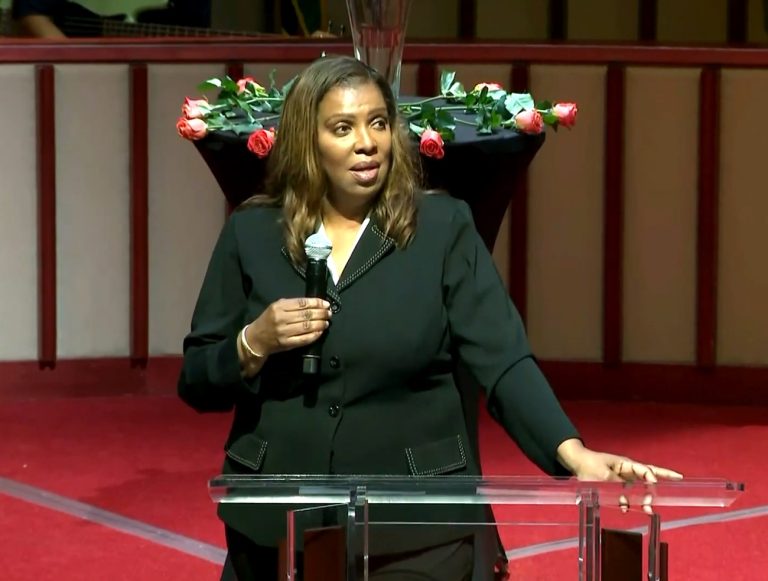

When New York Attorney General Letitia James filed a lawsuit against beef giant JBS Foods, alleging deception over its commitment to achieve net-zero emissions, she may have inadvertently given companies another reason to resist ESG commitments. [emphasis, links added]
The Center for Consumer Research, a consumer advocacy nonprofit, sent letters to three major companies that made similar pledges, warning them of potential lawsuits.
Now, Four state attorneys general are contacting the companies, saying the comparisons between their statements and JBS's are “stark” and “raise real concerns.”
No proven practices
JBS Foods touts its commitment to achieve net-zero greenhouse gas emissions from its operations by 2040. This includes reducing emissions from all JBS facilities by 30% by 2030 and using 100% renewable electricity by 2040.
James said in the complaint that the company has no plans to reach net-zero emissions by 2040, and even if it did, JBS “cannot realistically meet its commitments because there are no proven agricultural practices that can reduce greenhouse gas emissions to net zero at the scale that the JBS Group currently has.”
The complaint also argued that offsetting these emissions would be “unprecedentedly expensive.”
In other words, according to the lawsuit, JBS [can’t produce beef] At the company's scale without producing emissions, any plan to eliminate those emissions would be costly. This is exactly the argument net zero critics make against all big industries.
Yet many companies have made such promises, and climate activists are resisting what they call “greenwashing.”
According to the anti-fossil fuel National Natural Resources Defense Council, “greenwashing” is “the act of making false or misleading statements about the environmental benefits of a product or practice.”
James' lawsuit inadvertently raises the question: If companies can’t produce products at scale without emitting emissions, should they make sustainability and ESG commitments?
virtue signaling
Consumer research has been raising concerns ESG commitments could harm farming operations and drive up costs, which they argue will ultimately be passed on to consumers.
In July, the organization launched a six-figure advertising campaign to raise awareness of the impact of ESG on U.S. farms and Americans’ grocery bills.
After James announced the lawsuit, the group noted there was nothing unique about JBS's ESG commitments. Many other food companies have issued similar statements.
As a result, the Center for Consumer Research sent letters to some of these companies warning them: If JBS could be sued over its sustainability commitments, any company with similar commitments could face litigation if it fails to deliver on those commitments.
“For virtue signaling purposes, they shouldn't accept promises they can't keep. But now is their chance to turn things around. That's why we want to send these letters to help them understand the consequences,” said Wilshere, executive director of consumer research Ed told Just news. …
growing concern
“The aim is that consumers are not doubly accused of making ineffective investments in an attempt to achieve net zero emissions and then potentially being hit with legal costs when sued,” Heard said.
The arguments made by Consumer Research in the letter attracted the attention of the attorneys general of Iowa, Kansas, Nebraska and Tennessee.
The attorney general sent letters to the companies warning of “growing concerns” about companies making misleading statements and about the state's consumer protection laws.
The attorney general is also asking companies to confirm whether the statements cited by Consumer Research reflect their current commitments and to provide any commitments or commitments by companies to actually achieve net-zero emissions. …
full retreat
Many companies are quietly abandoning their sustainability commitments. Net-zero trackers cheered when the number of companies achieving net-zero emissions targets increased by 40% between June 2022 and October 2023, surpassing the 1,000 companies on the Forbes Global 2000 list of the world's largest companies.
The problem is that committing to net-zero emissions is easy, but actually delivering on it is another matter entirely.
The same study also pointed out Only 4% of these companies demonstrated clear plans to achieve these goals.
A Bain & Company survey found that for CEOs, sustainability has taken a backseat to concerns about inflation, artificial intelligence and geopolitics.
Morgan Stanley, Bloomberg reportsquietly ignored the ESG commitment to promote the prevention, removal or reduction of 50 million tons of plastic waste by 2030.
Bloomberg Intelligence analysis found that most U.S. companies have significantly reduced discussions of ESG and similar topics during quarterly earnings calls.
Google stopped claiming to be carbon neutral this year.
Read the full text of Just The News
